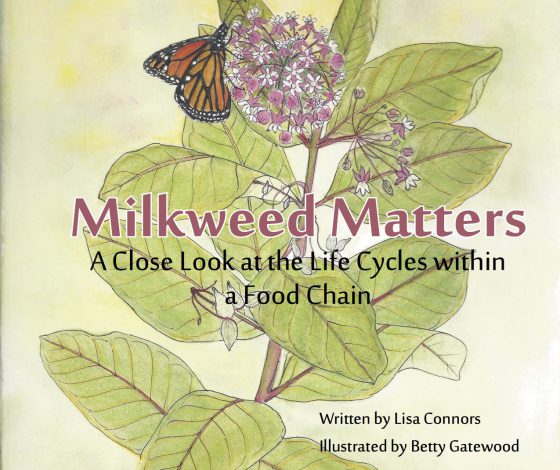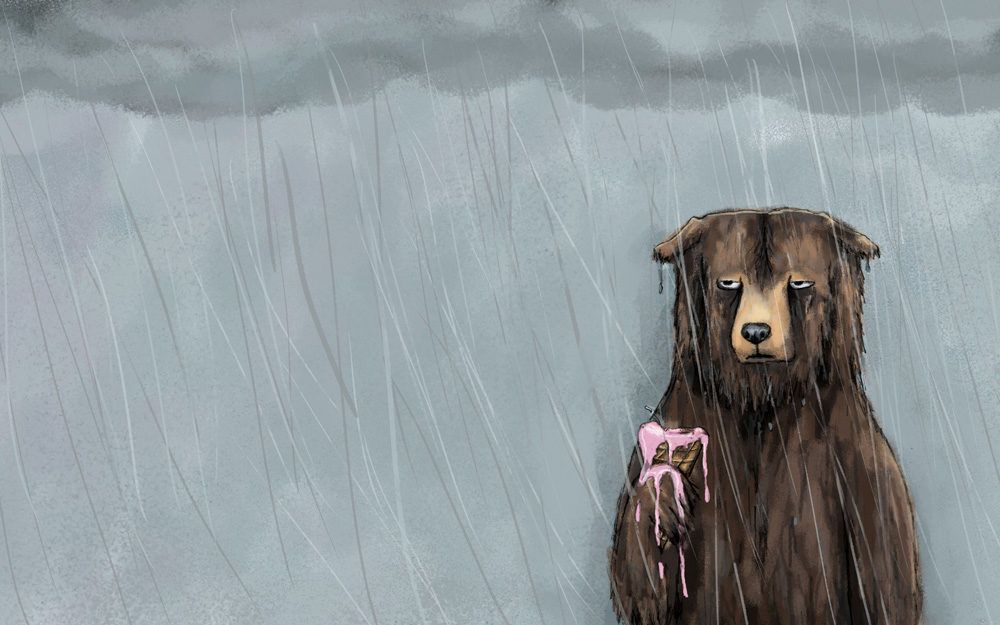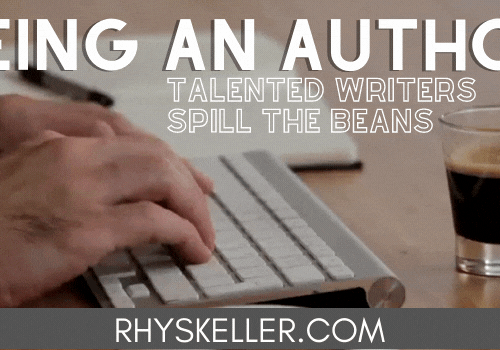It’s a pleasure to be interviewing author and science extraordinaire Lisa Connors. She writes children’s books and nature essays in the hopes of instilling the same awe of nature in others. Lisa loves traipsing around on her 14-acre property collecting ideas and being impressed by her fellow Earthlings. When she’s not actively writing, she is likely pre-writing (a.k.a. day dreaming) while gardening, cutting wood, mowing, drawing, canning and reading…lots of reading. You can connect with Lisa and see what she’s up to on her blog, Facebook, and Twitter.
When you buy through my links, I may earn money from my affiliate partners. Learn more.
Lisa, thank you for setting the time aside to share your thoughts and story with us. Your writing interests seem to revolve around your education and career. Most writers seem to want an escape from their vocation. What helps you maintain such a sharp focus?
Thank you for this interview opportunity. I guess I am blending one common piece of advice, write what you know, with another, write what you love. Science and nature have always been passions of mine. There’s so much to learn and so much being discovered to ever run out of ideas. I just love figuring out an angle and approach that will appeal to young readers in the hopes of instilling in them some of the awe I feel about the world. I believe this awe is crucial to helping young people become active adult citizens.
You’ve recently released Milkweed Matters: A Close Look at Life Cycles in a Food Chain. How simple or complex do you feel self-publishing is for aspiring authors and illustrators?
With today’s platforms, I think it is rather simple. That being said, I was very hesitant to release something that might not be professional looking. My desire to share content with children overcame my fear of failure. Milkweed Matters was my first attempt, and it has gotten good feedback, but I still have a lot to learn in the areas of design and format.
As soon as I released Milkweed Matters as an e-book, I knew I wanted kids to hold a real book in their hands. I then used CreateSpace’s print-on-demand service to offer it in a paperback format. It’s the paperback that sells the best.
Now, you’re also working on a traditionally published book, Oliver’s Otter Phase, to be released by Arbordale Publishing. That should be coming out very soon, right? Could you describe your experience with the traditional publishing route?
Oliver’s Otter Phase comes out February 10, 2018! My experience is, I believe, similar to most writers…there’s a lot of waiting! This idea was born in October of 2014 and drafted a month later. I revised, had it vetted by two sea otter experts, revised again and sent to Arbordale. They took over a year to say yes. Once the illustrator started working on the manuscript, there was little for me to do and, as is fairly typical with traditional publishing, I could not contact the illustrator until she was finished. In total, it’s been over 3 years from idea to publication.
Working with Arbordale has been wonderful and I hope to do so again in the future. For this past month I have been quite busy preparing for the debut party, lining up school and library visits and making sure I know as much as I can about sea otters.
You’ve mentioned previously that you like to write fiction and non-fiction. Are all of your fiction books based largely on non-fiction elements? Can you give us any tid-bits of your fiction projects?
I do write nature essays for a blog, which I started when I quit teaching in order to develop a writing practice. This blog tends to profile a plant or animal encountered on my property. Most of my children’s stories actually are fiction with nature facts woven into them. However, not all my ideas are nature related: I’ve got one about a girl and her relationship with her grandfather who is dying; one about a girl who changes her clothes many times a day.
But I guess I do have a LOT of manuscripts that focus on some aspect of the natural world. I’m working on one about retelling Goldilock’s day that is related to science; one about black snakes, one about streams; there are many.
Life as an author is challenging. With so many aspiring and as-yet-unpublished authors and illustrators reading this, what advice would you give to them as they learn and endure the various trials and tribulations of becoming successful in the industry?
Well, as they probably know, it is not a place to get rich easily! Writing is hard work and getting your manuscript published is even harder. But if it is what you love, what’s calling you, then stick with it. I’ve heard it takes about 10 years to get your first book published, and I do not know if that means when working part-time or full-time on the writing.
So first of all, one needs patience and perseverance. There is a lot to learn online and I recommend one take full advantage of craft books, webinar and online groups to learn about the industry. Really research the publisher (or agent) before you send your work out. Make sure your theme or voice is what they’re looking for.
How would you describe your experiences working with illustrators? What are some important aspects of a successful author-illustrator relationship?
Well, in the traditional publishing world, you don’t really get to work with your illustrator. With self-publishing you of course have to find your own illustrator. My illustrator for Milkweed Matters, Betty Gatewood, is a botanical illustrator and a teaching acquaintance of mine at the time that I asked if she’d be interested in creating some illustrations for me. Because I do not have an art background, I was intimidated with finding and communicating with a professional children’s illustrator. Betty and I are learning as we go and we’ve become good friends.
But to answer your question, I think a key aspect of a successful author-illustrator relationship is to let the illustrator have freedom to express the story the way he or she wants. Getting a book published is collaboration. Another phrase in the industry to remember is “It’s your manuscript; it’s not your book.”
If you could say one thing to all the children in the world, what would it be?
Never stop being curious! Curious people ask questions, read often, have insight and solve problems. That’s what the world needs. Well, the world needs more kindness to, but you asked for one thing.
If you could be any animal for a week…what would you choose and why?
I wanted to be a wolf biologist a long time ago, so that is what animal first pops in my head. But really, I think a songbird, maybe a Carolina wren. I would love to experience the flying, flitting about in trees and speaking in song. Carolina wrens are quite garrulous and active. I need solo time every day. It would be a nice change.
Looking ahead, what’s next for you? What can fans expect to see in the next 1-2 years? What about in 5-10 years?
I have written another book with the but that’s not all mantra found in Milkweed Matters. My same illustrator, Betty Gatewood, is about halfway through with the illustrations. I hope to have it published by summer of 2018.
My dream, though it may take longer than 10 years, is to illustrate my own picture books. I am learning to draw and paint with watercolors via online classes and a nature journal club. One thing I love about writing (started when I was 47!) is that I can do it while traveling with my family. I hope to be writing long past any normal retirement age, so I hope to actually gain fans (how delightful!) and to give them many books.
Lisa, thank you so much for your thoughts and sharing your story with us. I have no doubt you will continue to be successful as an author and soon-to-be, author-illustrator. For all you readers, be sure to follow Lisa on social media, sharing this interview and Lisa’s books to spread the word about this wonderful nature writer.
It’s never too late to start your journey as an author or illustrator. As the saying goes, the best time to plant a tree is 20 years ago. The second best time is NOW. There are many resources available to help you and, as always, please contact me if you need a friend in the publishing space.




lmconnors
February 9, 2018Thank you Rhys, for posing such thoughtful questions and for your gracious sharing of my journey.
rhyskeller
February 10, 2018Thank YOU, Lisa! It was great to have you and I look forward to circling back with you for another interview in a few years to see how life has changed. Keep writing!